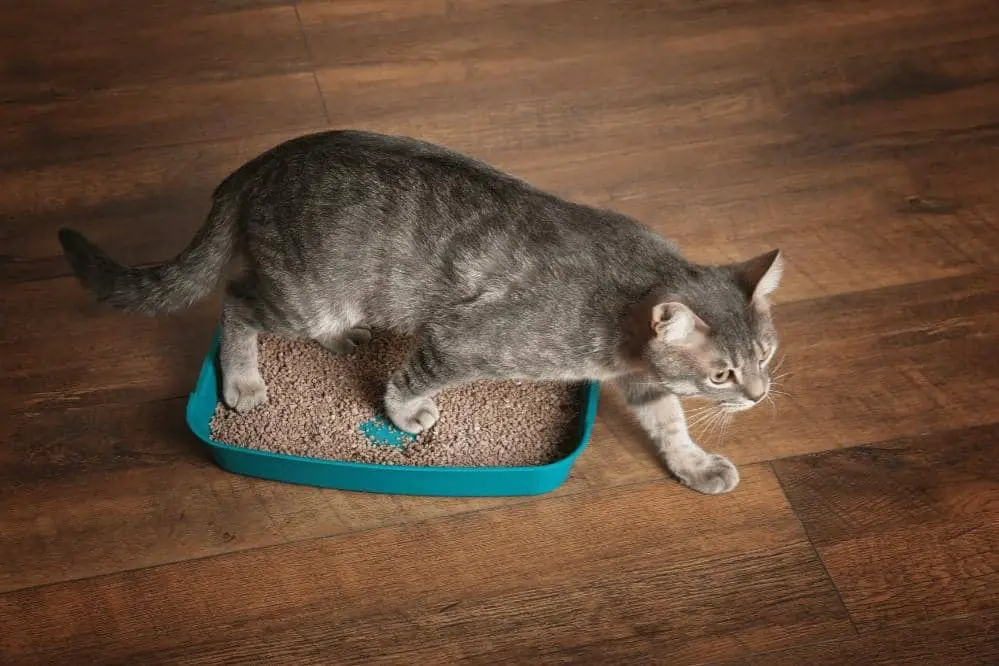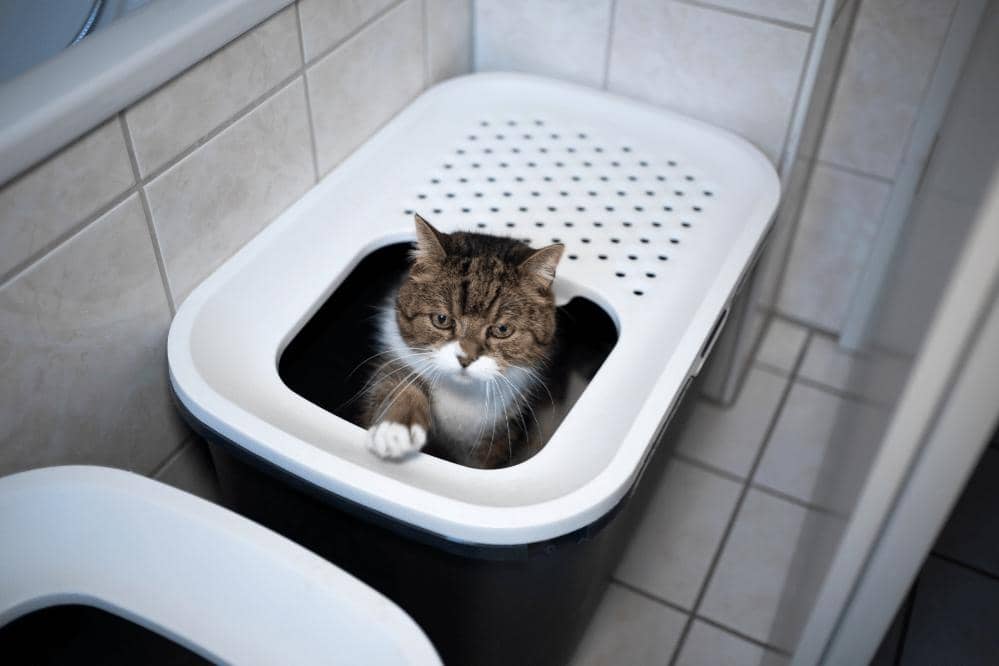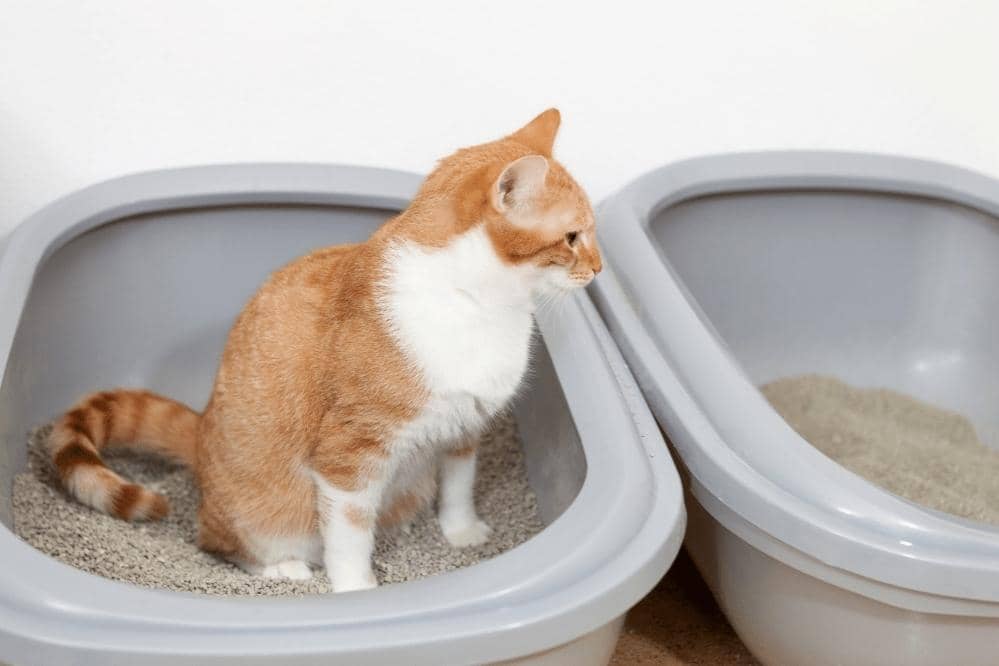Why Do Cats Not Use a Litter Box?

When people choose to adopt pets, they will often come across situations that are unfavorable. It is simply a natural part of pet ownership, as there are times when your pet may or may not realize that what it is doing is wrong. This is especially the case with newer pets, and doubly so with pets that are both new to your house and old enough to be stubborn and stuck in their ways. Depending on what kind of pet you own, it can be easier to tell what the problem is than others. For instance, birds are not always easy to work and communicate with, while dogs are excellent at communication. One animal that falls in between these two categories is the cat.
Cats are often given an aloof and distant reputation, but the truth is that they try to communicate the best that they can as long as they recognize you as the owner of the house. A cat who is feral or recovering from living a feral lifestyle may not interact as much and it may be harder to read its communication. The key to understanding what your cat wants is always going to be to look for the nonverbal cues. Curiously enough, most cats reserve meowing at each other for mating calls or when they are surprised or in pain. Cats do not naturally meow back and forth to each other as they do with people. Cats meowing at people is a behavior that is learned as your cat realizes that you, as a human, cannot read their nonverbal cues, nor can you hear their lower meows, so they learn to yell to get your attention.
One of the types of nonverbal cues that your cat will give can surround a particular situation. A good example of this is when your cat simply stops using its litter box. A lot of people may interpret this as the cat being stubborn and difficult for seemingly no reason, but the truth is that it is a way that your cat is trying to get your attention. Assuming that the cat has been litter-trained and has a history of using the litter box properly, it knows that it shouldn’t relieve itself elsewhere. When it goes against what it has learned, it is a sign that something may not be right in the cat’s little world. This is where you, as the owner, will work on finding the clues and figuring out why your cat is acting the way it is.
Ruling Out Medical Problems
By nature, cats are clean animals. They bury their droppings and they groom their fur meticulously. Domesticated cats know that there is a specific place to relieve themselves, and they know that this is the designated area where droppings belong, and some cats can actually become distressed if they cannot find their litter boxes. If your cat, who was previously using the litter box as it should, begins relieving itself elsewhere in the house, there is a chance that there is a medical issue happening. Whenever your cat’s behavior changes for seemingly no reason, or if you see other signs of discomfort in your cat, you will want to consider ruling out medical problems before you try to rectify behavioral ones.
The type of medical problem your cat may be having can range from the cat needing to be spayed or neutered to the cat having issues with its bladder, kidneys, or digestive system. Cats who are not fixed will often urinate inappropriately to mark territory and to signal to other cats that they are ready to mate, so getting your cat fixed can cut down drastically on the amount of cat urine in the house. Cats who are incontinent may have leakage on their hind legs and there may be dribbles of urine outside of the litter box. Cats who are pained when passing urine or feces may come to falsely associate the litter box with their pain, leading to them avoiding the litter box to relieve themselves. These are just some of the examples of how medical issues can lead to your cat not using its litter box as it should.
Addressing Behavioral Problems
There are a few different behavioral problems that your cat may have that could cause it to do this. For some cats, it can be a matter of cleanliness. Litter boxes need to be cleaned daily and have their litter completely replaced after one week to ensure that the cat doesn’t decide that the litter box is too “dirty” to use. Other times, it may be caused by a territorial dispute. If you have multiple cats and one of them seems to have a more dominant personality, it may try to “own” a litter box, not allowing other cats to use it, which will lead to the cats relieving themselves elsewhere. Finally, there is an unknown phenomenon where cats (and sometimes dogs) seem to forget what they were trained and they need to be taught again. This can happen in regards to litter boxes, and it generally means that you will have to fully retrain your cat that the litter box is where its deposits belong.
Fixing an issue of a stubborn cat can be as simple as making sure to clean the litter box more often. Other times, you may have to purchase a new litter box or a new type of litter that conceals odors a little bit better to help your cat believe that the litter box is clean enough to use. For cats that are having territorial disputes, the first step you should take is making sure the more submissive cats have their own separate litter boxes to use. In multi-cat households, you need to make sure that you have one litter box per cat in the house, plus one extra to be on the safe side. In a house with three cats, you would have four litter boxes. Once those cats have found and claimed their own litter boxes, you can begin to address the problem of a power struggle between your cats. Finally, for cats who seem to forget their litter training, there is really nothing more that you can do other than teach the cat once again that the litter box is where droppings belong. If you catch on to the possibility of your cat forgetting early on, your cat may be able to pick up on using the litter box again quickly, making it an easier process for you.



